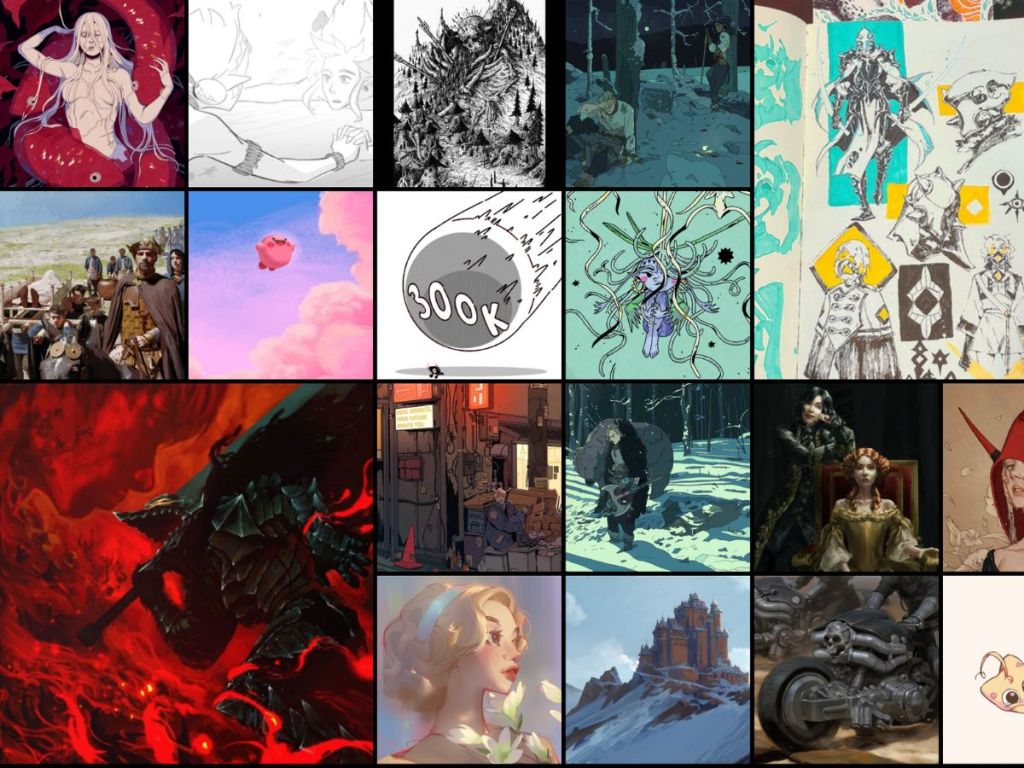Artists are sick and tired of mainstream social platforms that scrape their artwork without consent to train AI systems. Facebook and Instagram have recently come under fire for doing so, which has finally pushed artists to migrate to a newish social platform called Cara.
What is Cara?
Jingna Zhang, a Singaporean photographer and director based in the US, started Cara to protect artists’ intellectual property from AI. Cara went live circa April 2023, but it is now taking off in the wake of debate around a Facebook and Instagram policy that would collect user data to train Meta’s AI systems, unless users chose to opt out.
Erica Tan, or Crushedclub, a Melbourne-based illustrative tattoo artist, tells The Chainsaw that Instagram’s current algorithm has made it difficult for creators to stand out, adding to the frustration.
“The Instagram of today is very different from the Instagram of just one or two years ago that I was really in love with. Back then, Instagram was actually fun… [Now] I have to post Reels, pictures of myself, behind the scenes, create a content calendar… it’s gotten to the point where I’m spending a lot more time on my social media than on my art itself,”
“It feels like I’ve been chained to the algorithm, I’m not making art for art itself anymore. I’m making art that I think will do well on socials. I saw Cara as an escape to that.”
Protecting oneself from copyright infringement
The widespread use of AI art generators like Midjourney and DALL-E didn’t help either. Amid these ongoing disputes, Cara has exceeded 300,000 downloads on the iOS App Store in the US. It briefly surpassed major apps including LinkedIn, Discord and Reddit, and the online momentum shows no signs of slowing.
Zhang was a victim of intellectual property theft. In 2022 a painter from Luxembourg, Jeff Dieschburg, was accused of copyright infringement, stealing and profiting off a photoshoot Zhang worked on for Harper’s Bazaar Vietnam. After a two-year legal battle, Zhang won the lawsuit and Dieschburg was convicted of plagiarism.
“It’s a reminder that copyright protects individuals from those that try to profit off our work without consent. It reaffirms that our work being online doesn’t mean we give up our rights,” Zhang penned on Instagram at the time.
Cara, AI art and NFTs
One could view Cara as a passion project stemming from Zhang’s experience as a multimedia creative. Cara’s current stance on generative AI is a strong rejection:
We do not agree with generative AI tools in their current unethical form, and we won’t host AI-generated portfolios unless the rampant ethical and data privacy issues around datasets are resolved via regulation.
Cara also does not allow NFTs, as the platform steers clear of trying to foster a culture “of get-rich-quick schemes or grifts”.
Before Cara, artists had been migrating to other alternative social media platforms. Artful, a website catering to artists, created a modest online buzz at the start of 2024. Bluesky, a decentralised social media app touted as the “Twitter killer”, also attracted a wave of artists.
Finding a safe space for art
“From my experience, [these platforms] usually have an influx of artists, but it eventually drops off,” Laura Thiele, a Melbourne 2D artist and illustrator, tells The Chainsaw. “It’s just exhausting moving to another app.”
Artists have expressed similar frustrations online, as protecting intellectual property takes significant time and effort. However, that hasn’t stopped them from experimenting with Cara. The number of artists flocking to Cara has surged so dramatically that Zhang says she is paying US$13,500 (AU$20,300) per month to keep the site’s servers running.
“Unfortunately, I think if art exists to be accessible to the general public via the internet, we’re going to face the threat of AI poaching our art for training,” Thiele says. “But I do still think [platforms like Cara] work long term as a way to socially unify artists, get the ball rolling on these discussions and draw boundaries with tech companies and other structures that seek to exploit our labour for their profit.
“Community [remains] our best solution as artists. We can support each other and spread word of other efforts to protect ourselves against AI.”
“I don’t think protecting our art from AI scraping should rest solely on the artist. For real meaningful change we need regulations and laws set in place. We need actual respect for the craft and the time we took to learn it,” Tan adds.
Image: Cara homepage, credit goes to various artists





